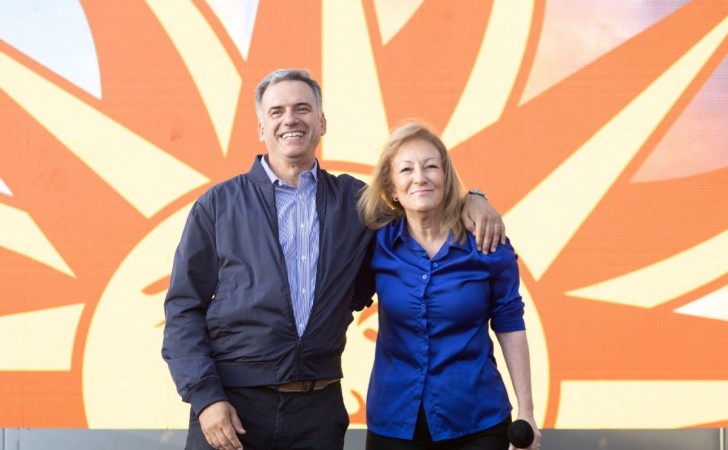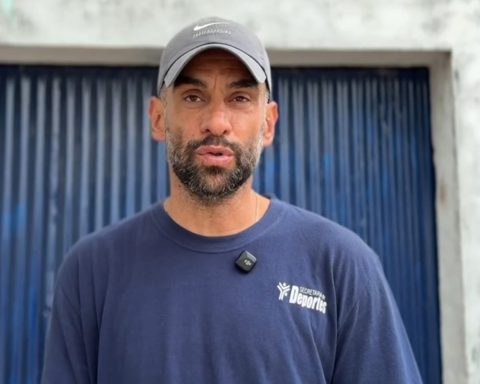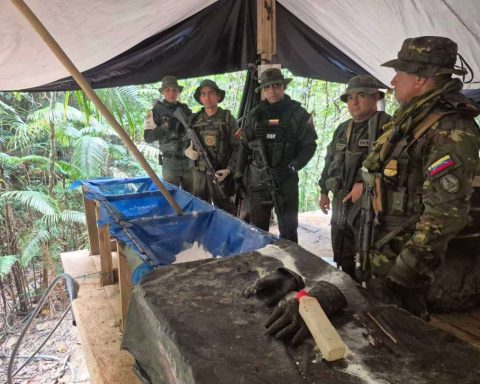
Consultants Option released this Monday its most recent voting intention surveythe second after the general elections and before the second round scheduled for November 24. In the runoff, Uruguayan citizens must decide between the Frente Amplio formula, composed of Yamandú Orsi and Carolina Cosseand that of the National Party, led by Álvaro Delgado with Valeria Ripoll. The electoral situation is extremely competitive, reflecting a continuous polarization in the electorate.
The results of the survey indicate that 48.5% of those consulted were inclined to vote for the Frente Amplio formula, while 45.1% preferred the option of the Frente Amplio. National Partybacked by the right-wing coalition, which includes the Colorado Party, Cabildo Abierto, the Independent Party and the Constitutional Environmentalist Party. In turn, 6.3% of those surveyed chose to vote blank or cancel their vote, according to data presented by Rafael Porzecanski, director of Opción Consultores, on the Telenoche program on Channel 4.
When analyzing the strength of support for the candidates, the formula Orsi-Cosse presents 42% of firm voters, with 6% undecided. In contrast, the duo Delgado-Ripoll has 38% of firm voters and 7% of voters who have not yet decided what to do. This breakdown highlights the strength of the Frente Amplio among its current followers, although it also reveals a considerable segment of voters that still fluctuates between candidates.
Breakdown of the electorate: hunting for undecided votes
The survey also delves into how voters from different political currents will behave in this second round. For example, it is estimated that a 12% of right-wing coalition voters would favor Orsiwhile 82% of them would remain firm in their support for Delgado, with 6% of voters undecided. As for the “non-aligned” voters, Orsi attracts 38% of this group, against Delgado’s 24%, leaving 38% undecided.
The study suggests that the Frente Amplio candidate, Orsi, has a slight advantage of three points over his rivalindicating greater persuasion towards the FA formula in the external electorate. However, the electoral climate is described as “highly competitive”, with signs of improvement in the loyalty of voters of the ruling coalition compared to previous months. This phenomenon could play a crucial role in the outcome of the election.
The survey covered the period from November 4 to 9, carrying out 1,150 telephone interviews. The maximum margin of error allowed was +/- 2.3%, with a confidence level of 95%. This poll is the second to show Orsi in a favorable position heading into the runoff, suggesting a shift in public perception after the first round.
It is the second pre-ballot poll that gives Orsi the win
In a previous survey, the consulting firm Citizen Participation Plant had also shown Orsi leading three points ahead of Álvaro Delgado. This trend of slight advance of the FA candidate is an element to consider, as well as the retention of votes by both parties, which seems to be total among their respective bases. 93% of those who voted for the National Party in the first round will reaffirm their support for the coalition candidate, while 79% of voters from other parties will also align with Delgado.
However, 3% of the ruling party’s voters lean towards the Frente Amplio formula, and 18% are still uncertain. The loyalty of the FA electorate is considerably high, with 98% of its voters showing the intention to repeat their vote in the runoff. This establishes a complex framework for the definition of the second round, which will end up depending largely on the decisions of undecided voters, emphasizing the volatile and dynamic nature of this electoral process.



















